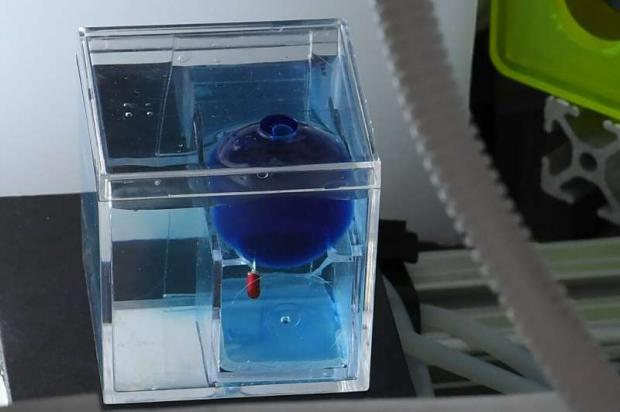
Breaking News
 The New Battle for the Americas: Why the Western Hemisphere Is Becoming a Global...
The New Battle for the Americas: Why the Western Hemisphere Is Becoming a Global...
 EU Sanctions Coming to a Neighborhood Near You
EU Sanctions Coming to a Neighborhood Near You
 World War And The Plan To Control Or Kill Young Western Men
World War And The Plan To Control Or Kill Young Western Men
 Is DIY Spray Foam A Scam? I Tested It On A Shed
Is DIY Spray Foam A Scam? I Tested It On A Shed
Top Tech News
 Travel gadget promises to dry and iron your clothes – totally hands-free
Travel gadget promises to dry and iron your clothes – totally hands-free
 Perfect Aircrete, Kitchen Ingredients.
Perfect Aircrete, Kitchen Ingredients.
 Futuristic pixel-raising display lets you feel what's onscreen
Futuristic pixel-raising display lets you feel what's onscreen
 Cutting-Edge Facility Generates Pure Water and Hydrogen Fuel from Seawater for Mere Pennies
Cutting-Edge Facility Generates Pure Water and Hydrogen Fuel from Seawater for Mere Pennies
 This tiny dev board is packed with features for ambitious makers
This tiny dev board is packed with features for ambitious makers
 Scientists Discover Gel to Regrow Tooth Enamel
Scientists Discover Gel to Regrow Tooth Enamel
 Vitamin C and Dandelion Root Killing Cancer Cells -- as Former CDC Director Calls for COVID-19...
Vitamin C and Dandelion Root Killing Cancer Cells -- as Former CDC Director Calls for COVID-19...
 Galactic Brain: US firm plans space-based data centers, power grid to challenge China
Galactic Brain: US firm plans space-based data centers, power grid to challenge China
 A microbial cleanup for glyphosate just earned a patent. Here's why that matters
A microbial cleanup for glyphosate just earned a patent. Here's why that matters
 Japan Breaks Internet Speed Record with 5 Million Times Faster Data Transfer
Japan Breaks Internet Speed Record with 5 Million Times Faster Data Transfer
California start-up sends tiny robots on voyage into brains

Bionaut Labs plans its first clinical trials on humans in just two years for its tiny injectable robots, which can be carefully guided through the brain using magnets.
"The idea of the micro robot came about way before I was born," said co-founder and CEO Michael Shpigelmacher.
"One of the most famous examples is a book by Isaac Asimov and a film called 'Fantastic Voyage,' where a crew of scientists goes inside a miniaturized spaceship into the brain, to treat a blood clot."
Just as cellphones now contain extremely powerful components that are smaller than a grain of rice, the tech behind micro-robots "that used to be science fiction in the 1950s and 60s" is now "science fact," said Shpigelmacher.
"We want to take that old idea and turn it into reality," the 53-year-old scientist told AFP during a tour of his company's Los Angeles research and development center.
Working with Germany's prestigious Max Planck research institutes, Bionaut Labs settled on using magnetic energy to propel the robots—rather than optical or ultrasonic techniques—because it does not harm the human body.



